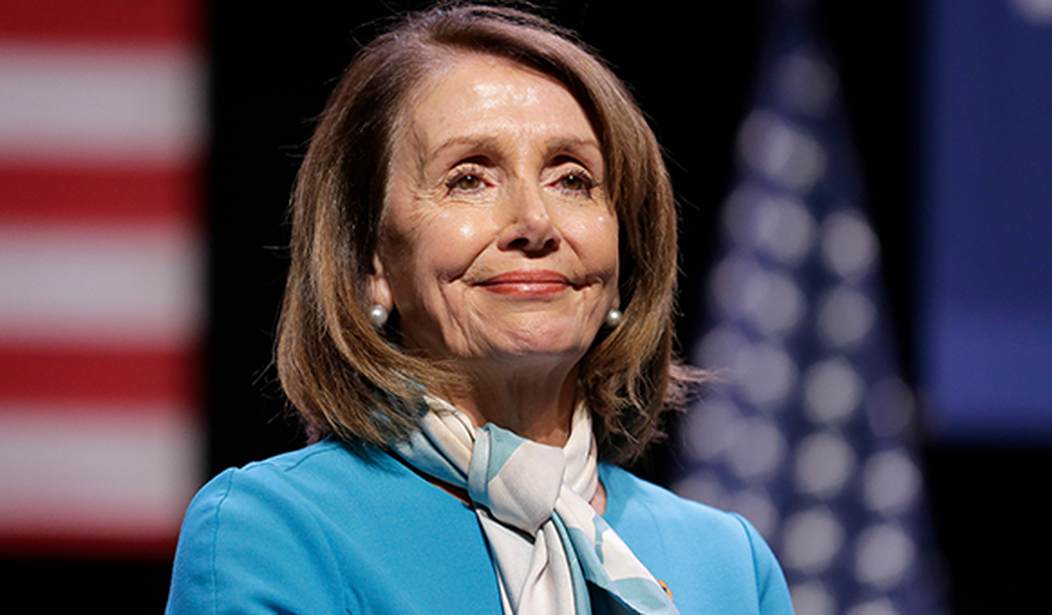They’re back at it again.
Even though the Federal Communications Commission (FCC) passed common-sense rules in 2017 that freed internet carriers from strict regulation, House Democrats have announced a plan to replace those rules. The new rules (same as the pre-2015 old rules) have been in effect for more than 267 days. In fact, the Taxpayers Protection Alliance has an Internet Reverse Doomsday Clock.
House Speaker Nancy Pelosi (D-Calif.) announced on Monday a plan to introduce the “Save the Internet Act” on Wednesday March 6th in the House and Senate. What exactly Democrats plan to save the internet from isn’t exactly clear.
Pelosi didn’t indicate what will be in that bill, and no text of the legislation has been revealed. But, it is expected that the legislation will include the return of onerous Title II regulations.
Under former Democratic Chairman Tom Wheeler, the FCC in 2015 created regulations designed to keep internet service providers (ISPs) from throttling speeds or blocking websites, a practice more in theory than reality given that those kinds of tricks would be disdained and rejected by customers.
More importantly, Wheeler’s regulations classified ISPs as common carriers and placed them under more restrictive Title II rules designed for phone service providers. Studies showed that the regulation and uncertainty hurt investment in broadband, stalling the effort to close the high-speed internet divide between urban and rural areas.
After the FCC ended the Title II classification under current Chairman Ajit Pai, Republicans in Congress have tried to re-establish “net neutrality” rules while dismissing the unnecessary regulations off of ISPs. But the plan has been stonewalled by Democrats who want internet classified as a telecommunications service and patrolled by the FCC even through the Federal Trade Commission continues to have policing authority over any malfeasance by carriers under the current rules.
Recommended
What has happened since the elimination of Title II rules? Only good things. A report from the FCC shows that the removal of Title II regulations helped boost the growth of broadband and close the digital divide, with the number of Americans without access to speeds of at least 100 megabits per second dropping 56 percent – from 78.9 million to 34.8 million.
While the Communications and Technology Subcommittee of the House Energy and Commerce Committee discussed a plan in February to promote an open internet, a coalition of groups led by TechFreedom issued a letter pleading with the House to establish common-sense “net neutrality” rules without implementing burdensome regulations.
The letter suggests that Title II of the 1934 Communications Act is essentially a system of price controls, and such price controls can stymie investment and innovation. It also argues that Wheeler’s rules gave too much authority to the FCC, powers that should be yielded by Congress instead.
“Unless Congress and the President act, jurisdiction over this issue will continue to swing between the Federal Communications Commission (FCC) under Democratic administrations and the Federal Trade Commission (FTC) under Republican administrations,” the letter says. “Neither side will be satisfied: Some will argue that the FTC cannot adequately protect consumers. Others will worry that the FCC’s claims of vast authority to regulate broadband will necessarily discourage investment — not just in broadband but also other services as well.”
“If Congress provides clear statutory authority for the enforcement of net neutrality principles, there will be no need for the FCC to reassert authority under either Title II or Section 706,” the letter continues.
As Reuters reported on Monday, there have been no major changes to how Americans access the internet since the repeal. There is, in essence, nothing to save. Instead, Democrats should work with Republicans to codify consumer protections that won’t place egregious rules on providers and slow the growth of broadband.
As the old adage says, “If ain’t broke, don’t fix it.”
























Join the conversation as a VIP Member